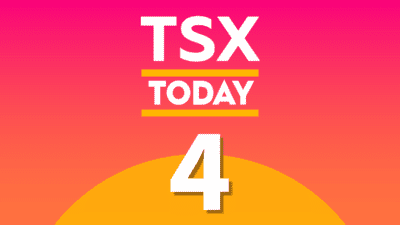Last year featured many defining moments for the Aeroplan program. The first occurred in June, when Aimia Inc (TSX:AIM) reached a deal with TD Bank (TSX:TD)(NYSE:TD) to offer Aeroplan-linked credit cards, replacing CIBC (TSX:CM)(NYSE:CM). Then in September, all three parties reached an agreement whereby TD would buy half of CIBC’s Aerogold portfolio, and both banks would get to issue Aeroplan-linked cards.
Fast forward five months, and all three parties reported quarterly results on the same day. As it turns out, response by cardholders has been well ahead of both TD’s and Aimia’s expectations, and attrition has been close to zero.
So who were the real winners? There is a strong case that all three parties benefited, but in very different ways.
Aimia gets to have its cake and eat it too
At the time the second deal was struck, most analysts agreed that Aimia was the clear winner. There was a simple reason: now two banks will be issuing Aeroplan-linked credit cards instead of one. That result should not have been surprising, since Aimia was the one in the best bargaining position, with two of Canada’s biggest banks fighting for its business.
Aimia gets other benefits, including a 15% increase in selling price per mile and a $100 million upfront payment by TD in 2014. These benefits did not come for free. Aimia did have to make some upfront payments and also made the Aeroplan program much more attractive to its members, compressing margins. But these were small prices to pay, and a more attractive Aeroplan program should help the company in the long run.
TD grows its credit card portfolio
In banking, there is no denying the profitability of credit cards – especially premium cards. One only needs to look at what TD was willing to do to get the Aeroplan deal. The bank has already agreed to nine-figure payouts to both Aimia and CIBC, and is offering plenty of incentives for consumers to sign up (such as bonus miles and annual fee waivers).
TD isn’t stopping there. The bank is hoping to use its new credit card portfolio as a launch pad for selling other banking products such as chequing accounts. And given the overwhelming response by consumers for the credit cards, such efforts have promising futures as well.
CIBC makes the best of a bad situation
Of all the parties, CIBC was negotiating from the worst position after Aimia reached a deal with TD. Thus the deal in September, which saw CIBC receive over $300 million for only half its card portfolio, was a blessing for the bank. In the earnings call, CIBC was able to report a one-time gain of $0.46 per share from the sale.
Foolish bottom line
But the biggest winner of all was probably the cardholders, who are being fought over like never before. This has come in the form of annual fee waivers, bonus mile offers, and a more attractive Aeroplan program.
So were there any losers? The answer is yes: rival credit card programs like Avion. These programs initially had an opportunity to steal market share from confused cardholders, but the three-way agreement in September helped to ensure a much smoother transition. And if that wasn’t bad enough for the rival card issuers, Aeroplan will now be more competitive than ever before.







